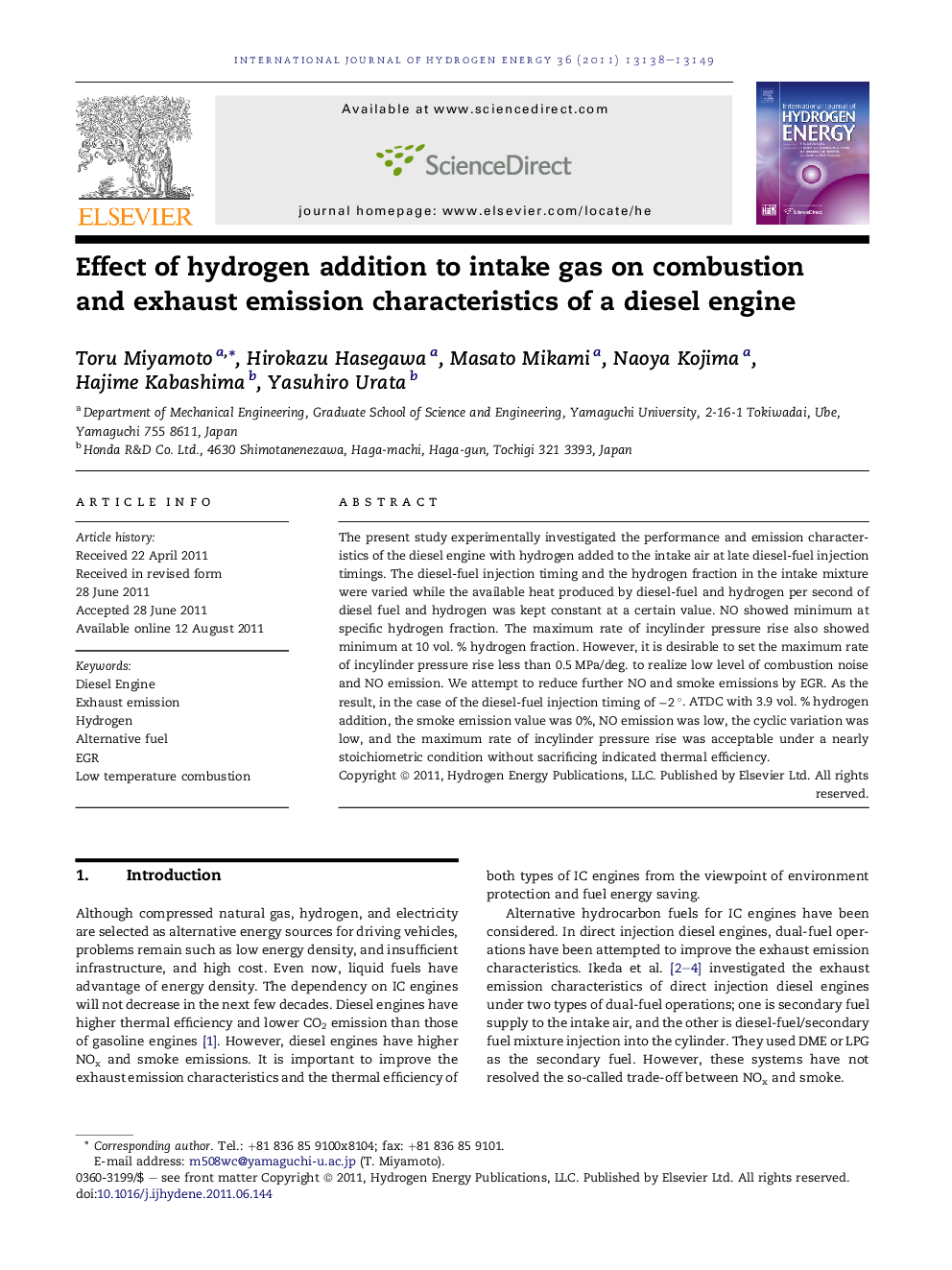| کد مقاله | کد نشریه | سال انتشار | مقاله انگلیسی | نسخه تمام متن |
|---|---|---|---|---|
| 1271981 | 1497573 | 2011 | 12 صفحه PDF | دانلود رایگان |

The present study experimentally investigated the performance and emission characteristics of the diesel engine with hydrogen added to the intake air at late diesel-fuel injection timings. The diesel-fuel injection timing and the hydrogen fraction in the intake mixture were varied while the available heat produced by diesel-fuel and hydrogen per second of diesel fuel and hydrogen was kept constant at a certain value. NO showed minimum at specific hydrogen fraction. The maximum rate of incylinder pressure rise also showed minimum at 10 vol. % hydrogen fraction. However, it is desirable to set the maximum rate of incylinder pressure rise less than 0.5 MPa/deg. to realize low level of combustion noise and NO emission. We attempt to reduce further NO and smoke emissions by EGR. As the result, in the case of the diesel-fuel injection timing of −2 °. ATDC with 3.9 vol. % hydrogen addition, the smoke emission value was 0%, NO emission was low, the cyclic variation was low, and the maximum rate of incylinder pressure rise was acceptable under a nearly stoichiometric condition without sacrificing indicated thermal efficiency.
► H2 addition decreased combustion noise for late diesel-fuel injection timing.
► Smoke emission reduction effect of H2 addition was greater for higher EGR rate.
► LTC was achieved by combination of H2 addition, late diesel-fuel injection timing and EGR.
► Low emissions were existed under a nearly stoichiometric condition with H2 addition.
Journal: International Journal of Hydrogen Energy - Volume 36, Issue 20, October 2011, Pages 13138–13149